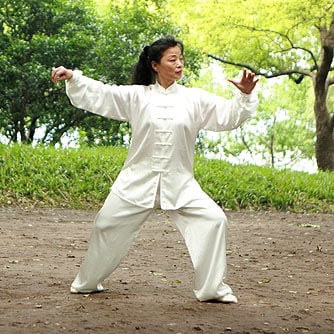Qigong is an ancient mind-body practice for which a number of previous studies have suggested beneficial health effects. Lorenzo Cohen, from the University of Texas MD Anderson Cancer Center (Texas, USA), and colleagues enrolled 96 women with stages 1-3 breast cancer residing in Shanghai, China. Forty-nine patients were randomized to a qigong group consisting of five 40-minute classes each week during their five-to-six week course of radiation therapy, while 47 women comprised a waitlist control group receiving the standard of care. The program incorporated a modified version of Chinese medical qigong consisting of synchronizing one’s breath with various exercises. Participants in both groups completed assessments at the beginning, middle and end of radiation therapy and then one and three months later. Different aspects of quality of life were measured including depressive symptoms, fatigue, sleep disturbances and overall quality of life. Patients in the qigong group reported a steady decline in depressive symptom scores beginning at the end of radiation therapy with a mean score of 12.3, through the three month post-radiation follow-up with a score of 9.5. No changes were noted in the control group over time. The study also found qigong was especially helpful for women reporting high baseline depressive symptoms. The study authors conclude that: “The current results indicated that qigong may have therapeutic effects in the management of [quality of life] among women who are receiving radiotherapy for breast cancer. Benefits were particularly evident for patients who had preintervention elevated levels of depressive symptoms.”
Qigong Improves Quality of Life
Chen Z, Meng Z, Milbury K, Bei W, Zhang Y, Thornton B, Liao Z, Wei Q, Chen J, Guo X, Liu L, McQuade J, Kirschbaum C, Cohen L. “Qigong improves quality of life in women undergoing radiotherapy for breast cancer: Results of a randomized controlled trial.” Cancer. 2013 Jan 25.
RELATED ARTICLES




